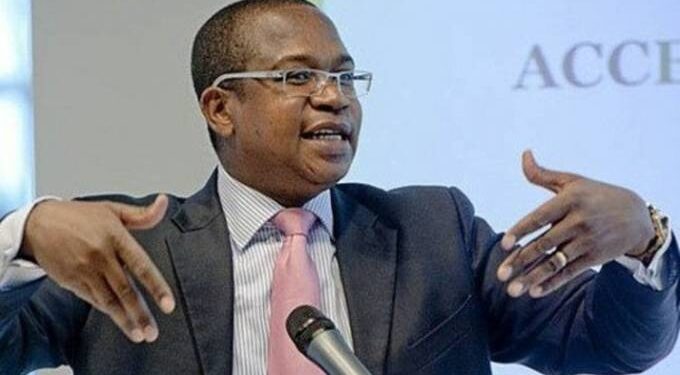FURTHER stabilising the Zimbabwe dollar and consolidating economic growth will be prioritised in the 2024 budget, Finance, Economic Development and Investment Promotion Minister Professor Mthuli Ncube has said.
He told the source that the $44 trillion budget, which will be presented later this month, will anchor the next phase of Government’s reform programme — the National Development Strategy 1.
“The budget is running under the theme of consolidating economic transformation,” he said.
“The economy has gone through considerable transformation over the last five years.
“So, under this budget of about $44 trillion, we want to target specific areas.
“The first area is stability; the budget must speak to stability, such as currency stability, which we need in order to develop.
“The second is infrastructure development, right across water infrastructure, roads, energy and particularly rail infrastructure. In this budget, we will allocate funds for the resuscitation of rail infrastructure.”
Funds will also be appropriated for value addition in mining and agriculture.
“That is the only way we can grow as a country and for our economy to create more jobs and realise high tax revenues going forward.”
As a starting point, he said, the Government has already outlawed export of unprocessed lithium.
“We now want to move to the next stage, as we move towards local battery manufacturing.”
The Government is also targeting mechanising the agriculture sector, especially smallholder farmers, to enhance production and productivity.
“In agriculture, we are already food-secure as a nation; we want to invest more in that sector to make sure that food security at household level is maintained.
“Households can even earn more by selling their surplus. So, mechanisation of the Pfumvudza/Intwasa is critical . . . you can think of those hand-held tractors and feeders and so forth — that is the kind of equipment we are talking of.”
The Government, he added, will continue to invest in the development of water bodies, while a programme to desilt water reservoirs will commence next year.
“The budget must maintain the right incentives . . . tax incentives to support manufacturing so that we can continue with the retooling that we are seeing . . . whether it’s support through the (forex) auction, tax rebates, but retooling has taken place, as you can see that 80 percent of the goods on the supermarket shelves are locally made.
“The sector is making progress.”
Further, there will be incentives to add impetus to the ongoing post-Covid-19 recovery of the tourism sector, while funding for both the health and education sectors will be similarly prioritised.
The Government, for example, plans to recruit an additional 5 000 teachers for public schools next year.
The welfare of public sector workers, as well as security forces and legislators, will also come into focus.
Economic analyst and member of the Reserve Bank of Zimbabwe Monetary Policy Committee, Mr Persistence Gwanyanya, said the 2024 budget must strive to restore confidence.
“We have come a long way and we now know better,” he said.
“Our challenges are structural and long term; they cannot vanish overnight.
“We now know that achieving stability requires more than rebalancing the budget.
“Confidence restoration is key,” he said.
“This tells you that it’s going to be a long journey.
“However, we will get there.”
The economy, he added, was heading in the “right direction”.
“We need to redouble efforts to rebuild confidence . . .
“Equally important are measures to support economic recovery.
“Durable stability is underwritten by a strong economy.”
The economy, he also said, continues to do well despite geopolitical tensions, dislocation in global supply chains and the fallout from climate change.
“Imagine the progress we would have made if we didn’t encounter droughts, cyclones, the pandemic and global economic slowdown.
“We may not realise the progress because we are coming from a deep hole.”
Source Zimbabwe Situation









